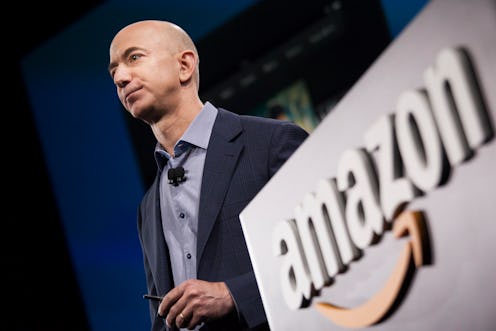News
Amazon, You're In Trouble
Only a few months after the U.S. Federal Trade Commission (FTC) went after Apple for a similar issue, Amazon is being sued for kids' in-app purchases — made without their parents' consent. Why is the conglomerate culpable for some toddler's buying habits? Well, the FTC is arguing that the company made it way too easy for the kids to spend their parents money. Even kids that couldn't read were spending money. And 30 percent of that money goes right into the Amazon pocket. We've all seen those annoying pop-ups that are irritatingly bright, and always just a bit too hard to close. They're especially prevalent in kids' apps, apparently, and they encourage spending — big time. One app the kids used was called Tap Zoo; one parent apparently found that her eight-year-old daughter had spent a whopping $80 in the app — to buy a virtual currency. Another app, Ice Age Village, also encourages kids to spend real money on virtual acorns and virtual coins; there, you could tack up a $99.99 charge on one-time buy, PCWorld reports. The lawsuit was filed in U.S. District Court for the Western District of Washington Thursday, and is calling on Amazon to
refund the parents the millions of dollars their kids spent while playing on their mobile devices. The FTC also wants this type of situation not to happen again, and so is hoping to ban the billing of account holders for any charges made without their "informed consent."Says the lawsuit:
In many instances, parents have complained that their children could not or did not understand that their activities while playing the app could result in charges that cost real money.Amazon has received thousands of complaints related to unauthorized in-app charges by children in these and other games, amounting to millions of dollars of charges.
In total, parents and other Amazon account holders have suffered significant monetary injury, with thousands of consumers complaining about unauthorized in-app charges by their children, and many consumers reporting up to hundreds of dollars in such charges.
Many of these charges were incurred years ago, though, before Amazon updated its in-app charge system. In 2012, for example, the company made it so that any purchase over $20 needed a password (of course, you could — and kids did — buy an unlimited number of items for less that $20, over and over again). And last year, they changed up their system again, making passwords necessary for some, but not all, purchases. It was only last month that Amazon finally started requiring passwords for in-app buying on its new mobile devices.
Still, one has to wonder — if your kid can't read yet, what's he or she doing with your Kindle?
Image: Getty Images
